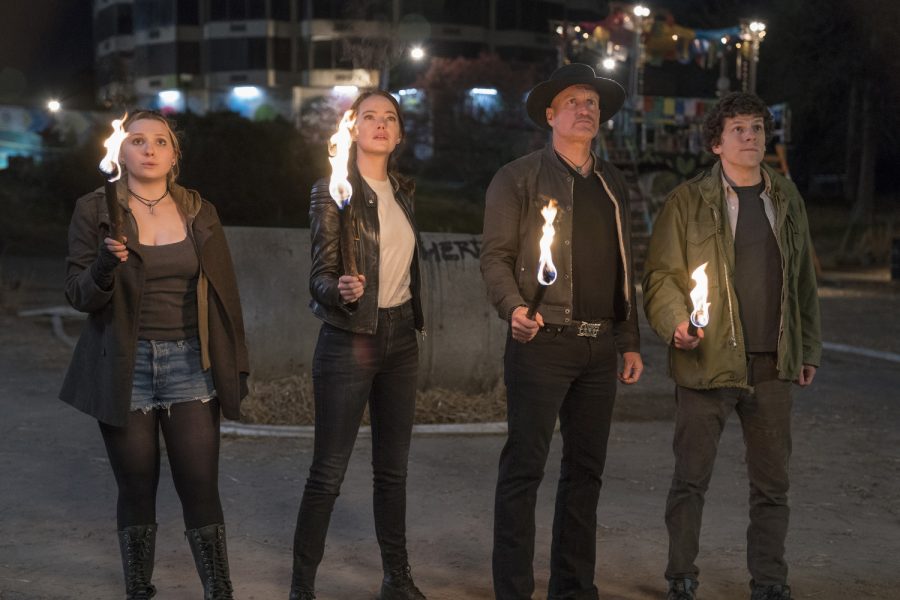Spooky Cinema: Why zombie movies are less brainless than they appear
UI professor Brooks Landon explains why zombies have stayed relevant in pop culture, and why it’s likely that they always will.
Little Rock (Abigail Breslin), Wichita (Emma Stone), Tallahassee (Woody Harrelson) and Columbus (Jesse Eisenberg) in Columbia Pictures' Zombieland 2: Double Tap. (Jessica Miglio/Columbia Pictures/TNS)
October 2, 2019
From Night of the Living Dead to The Walking Dead, zombies have been prominent in pop culture for decades. With Zombieland 2 premiering on Oct. 18 and the Halloween season drawing near, what keeps the fans of the undead coming back in hoards?
University of Iowa professor Brooks Landon, who will be teaching two courses, Reading & Writing the Zombie Narrative in Literature, Film, & TV and Dead is the New Alive next year, has some thoughts on the matter.
“I saw Night of the Living Dead when it came out in 1968,” Landon said. “1968 was a very bad year. Terrible things happened in ‘68. Martin Luther King and Robert Kennedy were assassinated. Vietnam was going on. The culture war between young people and old people was tremendous. And there was just something about Night of the Living Dead [that] seemed incredibly right.”
Those tragedies may seem entirely unrelated to a zombie movie, but Landon said that the zombie narrative is often a metaphor for real world events or cultural attitudes.
For example, the show iZombie addressed racial tensions between zombies and humans in its final season, and it closely reflected the way racial tensions are addressed in the media today.
Landon said he didn’t come to this conclusion after seeing Night of the Living Dead, but it’s a theory that he began to develop after seeing the rise of zombie popularity amongst the masses and some of the world’s most well-known writers.
After the release of the novel World War Z, Landon said he began noticing zombies everywhere.
“At the time I thought, ‘This is a fad that’s probably going to pass,’ but I was kind of interested in it,” Landon said.
Landon went from thinking zombies were an interesting fad to teaching how society needs zombies to understand the world around us.
“If you think about it, a zombie isn’t interesting,” Landon said. “A zombie doesn’t have any motivation, a zombie doesn’t have any guilt. All zombie films — at least all the early films — weren’t about zombies. They were about human reaction to zombies.”
According to Landon, zombies being mindless inhuman creatures makes them endlessly adaptable.
“The zombie is the Swiss Army knife of metaphors,” Landon said. “You can use the zombie as a metaphor for the spread of disease… You can use the zombie metaphor to represent any ‘other’ in society, whether you went to represent a racial other, the poor, immigrants, terrorists… It can be used to represent almost anything.”
Having an easy plot device that immediately creates conflict and can represent anyone or anything makes zombies timeless and, for simplicity sake, needed, Landon said.
“With all of the anxieties that permeate American culture now…I wonder if we were turning to zombies to just make it a little bit easier for us,” Landon said. “For instance, one of our greatest anxieties is terrorism. If a terrorist isn’t shooting at you or blowing something up, they can sink back into the populace. Good thing about zombies? They’re never invisible.”



